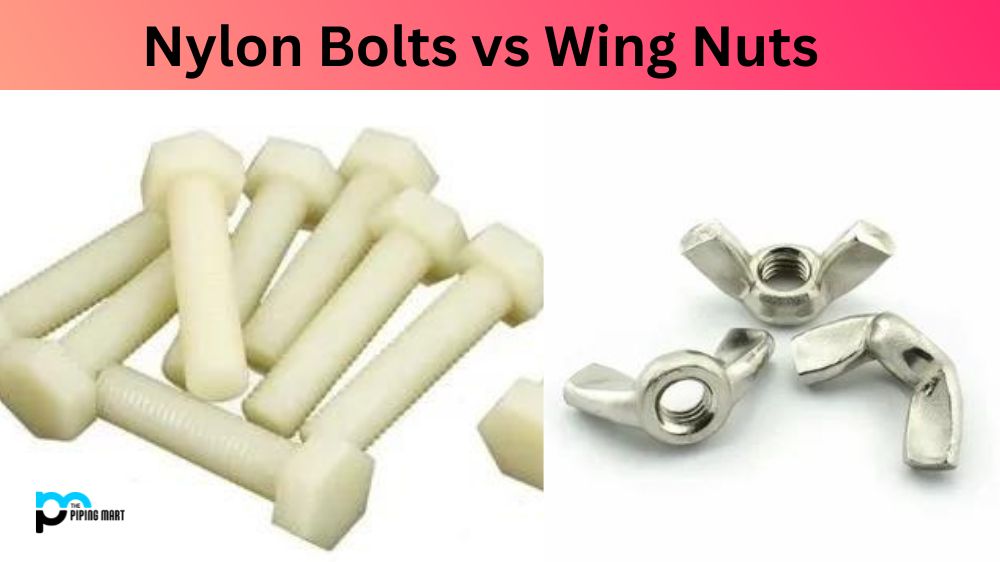When it comes to fasteners, there are countless options to choose from. Two of the most common fasteners are nylon bolts and wing nuts. Although they may seem similar at first glance, they have some fundamental differences. In this blog post, we will explore the differences between nylon bolts and wing nuts so that you can determine which one is more suitable for your next project.
What is Nylon Bolt?
Nylon bolts are fasteners made from an engineering plastic, nylon 6/6. They have superior corrosion resistance, self-lubricating properties, and high tensile strength. Nylon bolts are used in various applications, including electrical insulation, vibration isolation, and sound dampening. They are also used to attach components such as steel frames or aluminium panels without using the traditional metal fasteners that can cause unstable joints. Additionally, using nylon bolts for critical automotive and aerospace applications has become increasingly popular due to their lighter weight than metal fasteners while maintaining structural integrity.
What is Wing Nut?
Wing nuts are an essential fastening device used in a variety of applications. They are characterized by their butterfly shape, with wings on either side of the nut that allow for easy hand-tightening and loosening without needing a tool such as a wrench or a screwdriver. Wing nuts have threaded exteriors that can hold various pieces together, including motor mounts, electrical connections, plumbing fixtures, furniture assemblies and more. The advantages of wing nuts over other fasteners include ease of use and adjustment; they can also provide an aesthetically pleasing look due to their design.
Difference Between Nylon Bolt and Wing Nut
Material
The primary difference between nylon bolts and wing nuts is the material they are made of. Nylon bolts are made of nylon, a type of plastic that is lightweight and has excellent insulation properties. On the other hand, wing nuts are typically made of metal, such as stainless steel or brass, making them strong and durable.
Function
The main function of a nylon bolt is to fasten two or more objects together. The nylon material makes them ideal for electrical and electronic equipment use as they do not conduct electricity. On the other hand, wing nuts are primarily used for quick and easy tightening and loosening of nuts and bolts.
Thread Type
Nylon bolts and wing nuts also have different thread types. Nylon bolts typically have a coarse thread, so they are better suited for plastic materials or softer metals. On the other hand, wing nuts have a fine thread, making them more suitable for use in harder materials such as steel.
Ease of use
Regarding ease of use, wing nuts have a clear advantage. They have two wings that enable you to tighten or loosen them even without using tools such as pliers or a wrench. Nylon bolts, on the other hand, require a screwdriver or wrench to fasten or loosen them.
Cost
When comparing the cost of nylon bolts and wing nuts, nylon bolts are usually less expensive. This is because nylon is a less expensive material than metal, and they are typically used in applications where strength and durability are not the primary concern.
Conclusion:
In conclusion, while nylon bolts and wing nuts have their uses, there are some fundamental differences. Nylon bolts are lightweight and have excellent insulation properties, making them ideal for electrical and electronic equipment use. Wing nuts are better suited for quick and easy tightening and loosening of nuts and bolts and are typically made of metal, which makes them strong and durable. When choosing between the two, it is essential to consider the specific requirements of your project, as well as the cost and ease of use of each option.

A passionate metal industry expert and blogger. With over 5 years of experience in the field, Palak brings a wealth of knowledge and insight to her writing. Whether discussing the latest trends in the metal industry or sharing tips, she is dedicated to helping others succeed in the metal industry.




